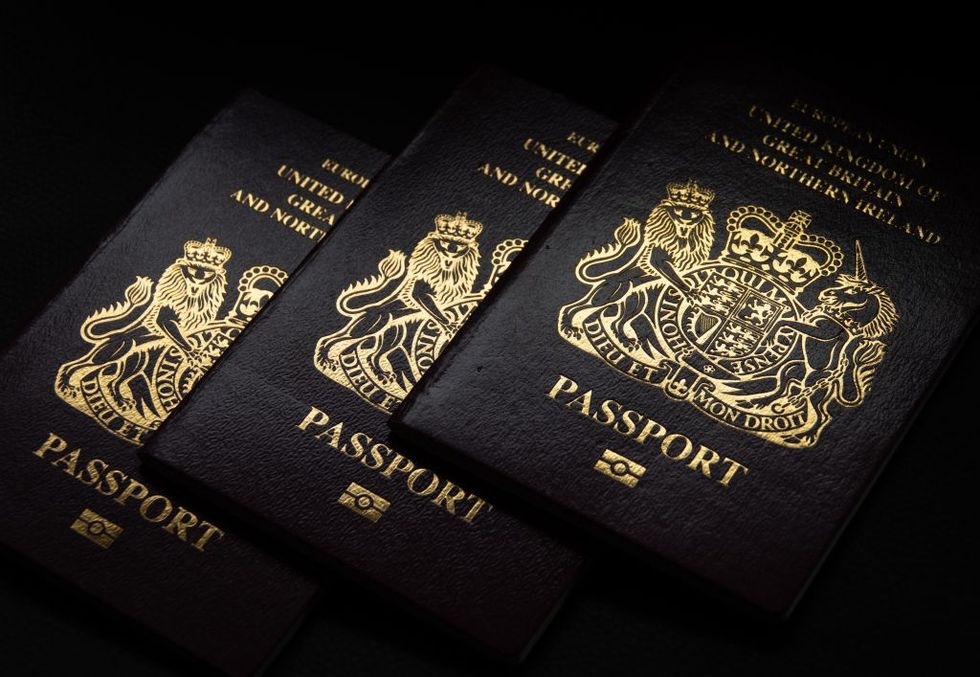
Check-in and boarding passes are set to be scrapped in huge changes to airport rules
GETTY
The new system would replace traditional boarding procedures with facial recognition technology
Don't Miss
Most Read
Trending on GB News
Holidaymakers could soon say goodbye to boarding passes and check-ins under a major overhaul planned by the United Nations aviation body.
The International Civil Aviation Organization (ICAO) is set to introduce a "digital travel credential" system within the next three years. This would allow travel without the need for documentation.
LATEST TRAVEL NEWS
- Terror warning as European spot is 'likely' to be targeted - Britons should 'be vigilant in public'
- 'Be careful what you wish for!' Britons threaten to boycott Spain as anti-tourist protests continue
- European destination with ‘sublime tropical climate’ sees 12% rise in UK flight
The UN-backed initiative would replace traditional boarding procedures with facial recognition technology. Passengers would instead use a "journey pass" stored on their mobile phones.
The new system would allow travellers to upload passport information to their devices, eliminating the need to present physical documents or boarding passes throughout their journey.
The changes represent a dramatic shift in how passengers move through airports, potentially streamlining the travel experience.
Under the new system, passengers will download a "journey pass" to their phones when booking a flight. This pass will automatically update if any changes are made to the booking.
Instead of manually checking in, travellers will be identified when they arrive at the airport through facial scanning.

Passports could be scrapped at UK airports
GETTYPassengers will be able to upload their passports to their phones, using their faces for verification throughout the airport.
Airlines will be alerted to passengers' presence when their faces are scanned upon arrival. The days of "fumbling around for your boarding pass or frantically checking in for a flight on the way to the airport" would effectively be over.
These would be the biggest changes in years, according to Valérie Viale, director of product management at travel technology company Amadeus.
"The last upgrade of great scale was the adoption of e-ticketing in the early 2000s," she told the Times.
"The industry has now decided it's time to upgrade to modern systems that are more like what Amazon would use. Many airline systems haven't changed for more than 50 years because everything has to be consistent across the industry and interoperable."
For the plans to succeed, airports will need significant infrastructure upgrades. This includes installing facial recognition technology and systems capable of reading passport information from mobile devices.
The new technology could raise privacy concerns, but Amadeus said it has developed safeguards. The company's system will wipe passengers' details within 15 seconds of each contact with airport "touchpoints" such as pre-security gates.
The technology could also transform how delays and missed connections are handled. Passengers who miss connecting flights due to delays beyond their control would receive automatic notifications with details of their new flights.

This proposed changes would impact billions of people worldwide
GETTY
Their journey pass would update automatically, allowing them to board the new flight without manual intervention. This represents a shift from the current approach where passengers often must queue at service desks to resolve disruptions.
The expert suggested check-in systems would move from "here are my reservations, you can now deliver", to be a more integrated and dynamic part of the journey.
This represents a fundamental shift from the fragmented systems currently in place. The ICAO's plans would create a more seamless experience from booking to arrival. If successful, the changes could transform air travel for millions of passengers worldwide.








